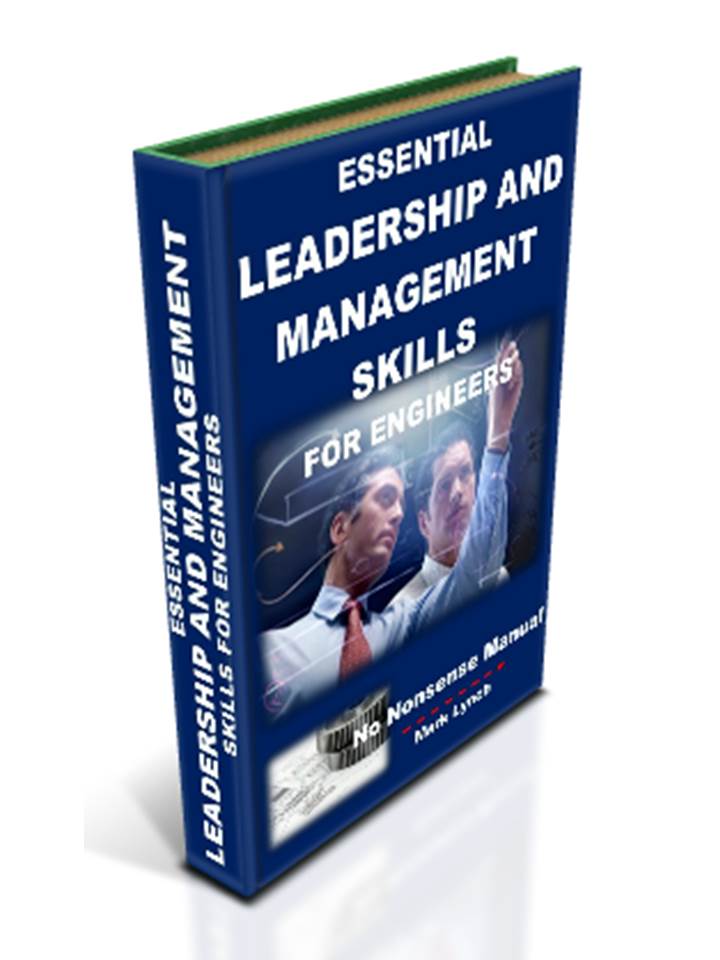'Hands-on Help for SMEs' and Smart Technical People'
Public Speaking for Engineers: Essentials of an Effective Speaker and an Excellent Speech
Essential Leadership and Management for Engineers
Public Speaking for Engineers
For engineers and technical managers there is an increasing need to speak publicly. Whether it’s addressing other employees in the workplace, representing the business externally or delivering a public presentation, technical people are having to stand up and speak more and more. However, public speaking is something that terrifies some people if they are honest with themselves. It is rarely something engineers are trained in and for many it doesn’t come naturally.
In response to this, the information below should empower you to be a confident and interesting speaker, able to put across a speech that motivates others and above all gets your message across effectively.
- Essentials of an effective speaker and an excellent speech
- What to avoid in a speech
- The importance of practice and planning
- Getting over anxiety - personal speech preparation
Public Speaking for Engineers: The Essential Skills...
Essentials of an Effective Speaker and an Excellent Speech
Although every speaker is different, there are some guidelines you can incorporate that are used by the best speakers. Follow these tips to produce a polished effective performance.
Aim to deliver encouraging upbeat speeches; ones that are thoughtful and if possible memorable. Structure your speech with a start, middle and ending. When planning your speech, find out how long you have and ruthlessly stick to it.
A good idea is to capture the audience’s attention with an opening line that has real impact. This is when they are most attentive, so a captivating statement related to your subject matter will grab their interest and hold it, as you proceed through the speech. Be imaginative with perhaps a surprising fact or a memory that most people can relate to. Above all be original. Make the speech yours.
Part way through the speech audience participation is a useful way of engaging your colleagues. People generally perceive it as more memorable and prefer it, rather than simply being talked to. It keeps people awake and makes them feel involved. In addition, it takes the heat off you, relaxes you and encourages the use of humour without the risk of you telling jokes that may potentially fall flat. When planning your speech, be clear which parts you want the audiences to participate in. Control the time and subject matter to ensure you stay on course.
Towards the end of the speech try summarising the key points in a few sentences. You want people to remember your core message so remind them. Engage them with positive body language, smiling and plenty of eye contact. Finish with a strong, thoughtful statement. Something impressive and memorable.
Now we’ve briefly covered what makes a terrific speech, let’s have a look at some of the merits of an effective speaker….
Confidence is a massive factor for many people. Most don’t feel confident before they start but, as long as this isn’t visible to the audience it’s OK – and it’s natural. A great way to increase confidence is to prepare thoroughly; draw strength from the fact you know your subject. Confidence also increases with practice and experience – the more public speaking you do, the less stressful the experience. Seek out opportunities to speak, start with informal get-togethers in the work place or socially.
Confidence should also be reflected in your body language. When going up, take a deep breath, smile and stride positively onto centre stage or wherever you are presenting. Exude self-assurance and think assertively to start feeling confident.
Your voice is obviously central to making a great speech. Consider the volume of voice and the size of the room. To ensure everybody can clearly hear you, project your voice about two-thirds of the way down the room. Progress your speech at a steady pace, consciously not talking too fast – typically a little slower than in normal conversation.
Be aware of the pitch and tone of your voice. Adjust these appropriately to emphasise key points and when asking questions. Also be mindful of your pitch and tone when starting and ending each section of the speech. Finally you may want to consider repeating significantly important sentences for emphasis – again with a suitable pitch, tone and slight slower speed.
Whilst you are talking, notice your audience without being distracted by them. Do the majority look engrossed? Are there nods of approval? Depending on this subtle feedback, consider the way you deliver your message and think about mixing things up. If they look like they are glossing over or have been talked to for a long time, vary things a little. Ask a few questions to get some audience participation, even if it’s just a show of hands. Get them to contribute. Start a bit of a debate. This naturally makes the presentation more interesting and memorable. Adapt the speech (within your overall plan) to accommodate the audience’s participation. However, be mindful of time. You may wish to state upfront whether you prefer questions during the speech or at the end.
Ultimately you want to create good rapport with your audience. This is achieved by delivering a persuasive presentation, with energy and personality. Remember to smile and use positive body language to engage the audience.
Public speaking is just another form of communication, albeit a formal one. Different types of speech clearly have different purposes. Three of the possible aims of your speech should be to inform, motivate and instruct.
Next... What to Avoid in a Speech
Back to Essential Leadership and Management Skills
For you, what are the qualities of a Great Engineering Leader?
Have you come across highly effective engineering managers and inspirational leaders? Are you one?!
Describe the qualities you think set the best apart from the rest. What practical tips and styles get the best results?
Share your story...and receive a FREE copy of our report 'Helping Your Manufacturing Business Thrive'...PS: Feel free to name-drop your firm! There's nothing wrong with a bit of free publicity!
What Other Visitors Have Said
Click below to see contributions from other visitors to this page...
Necessary Bridges: Public Speaking and Storytelling for Project Managers and Engineers 




Question: "What are the qualities of a Great Engineering Leader?" Answer: To be a great engineering (or any other field) leader, one must be a good allrounder, …











